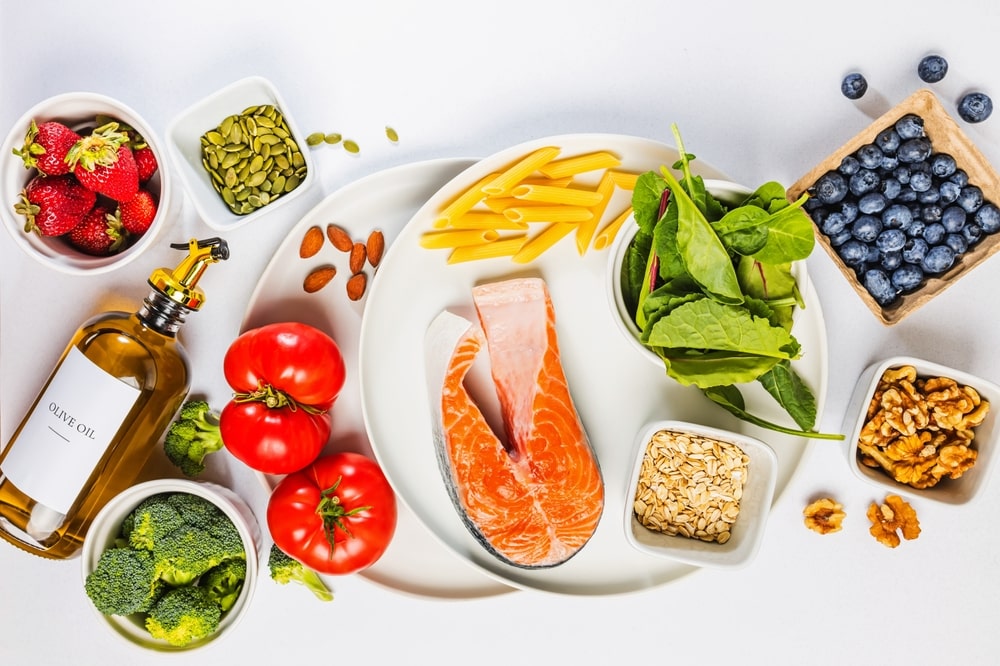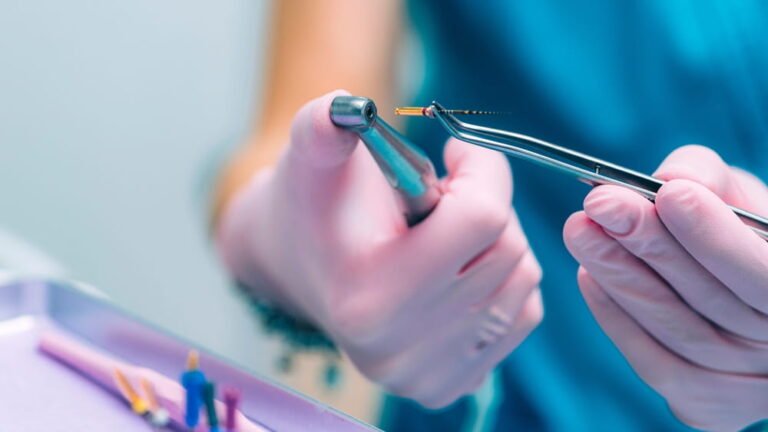Imagine this: You’re diligently brushing and flossing, but your gums still bleed when you brush, feel tender, or look a bit red. It’s frustrating, right? What if we told you that beyond your oral hygiene routine, what you put on your plate plays a surprisingly powerful role in the health of your gums? Many people don’t realize that inflammation, the body’s natural response to injury or infection, can silently be waging war in your mouth, contributing to common gum problems like gingivitis and even the more severe periodontitis.
The good news? Your diet can be your strongest ally in this fight.
Understanding the Silent Threat: Inflammation and Your Gums

Before we dive into delicious anti-inflammatory foods, let’s get clear on what we’re up against.
Your mouth is home to a complex community of bacteria, known as the oral microbiome.
When certain harmful bacteria overgrow, often due to poor oral hygiene, they can trigger an immune response in your gums. This response is inflammation.
Initially, you might notice gingivitis – your gums become red, swollen, and may bleed easily, especially when brushing.
This is your body’s alarm system. If left unaddressed, this inflammation can progress to a more serious condition called periodontitis.
In periodontitis, the inflammation isn’t just superficial; it starts to break down the tissues and bone that support your teeth.
This can lead to receding gums, loose teeth, and, if severe enough, even tooth loss. The scary part?
This localized gum inflammation can also contribute to systemic inflammation throughout your body, impacting your overall health, including conditions like heart disease and diabetes. It’s all connected!
What Exactly is an “Anti-Inflammatory Diet”?
Think of an anti-inflammatory diet as a way of eating that calms your body’s internal fire.
It’s not a restrictive fad diet, but rather a pattern of eating that emphasizes whole, unprocessed foods rich in nutrients known to reduce inflammation, while minimizing foods that tend to promote it.
This approach isn’t just good for your gums; it supports your entire body’s well-being.
The Power Players: Key Nutrients for Gum Health
So, what specific components in food act as superheroes for your gums?
Research shows that several key nutrients are vital in combating inflammation and supporting oral health.
Omega-3 Fatty Acids: The Great Peacemakers

You’ve probably heard of omega-3s, often associated with heart health and brain function. But did you know they’re superstars for your gums too?
These essential fats help your body produce compounds that reduce inflammation.
They essentially signal your immune system to calm down, which can directly lessen the swelling and redness in your gum tissues.
Where to find them: Fatty fish like salmon, mackerel, sardines, and tuna are excellent sources. Plant-based options include flaxseeds, chia seeds, walnuts, and edamame.
Vitamin C: The Collagen Builder and Antioxidant Shield
Vitamin C is crucial for healthy gum tissue. It’s a powerhouse antioxidant, meaning it helps protect your cells from damage caused by inflammation-triggering free radicals.
More importantly, Vitamin C is essential for the production of collagen, a key protein that forms the structure of your gums and connective tissues holding your teeth in place.
A deficiency can lead to fragile, bleeding gums.
Where to find it: Citrus fruits (oranges, grapefruits), bell peppers, strawberries, kiwi, broccoli, and leafy greens.
Vitamin D & K: Bone and Blood Allies
These fat-soluble vitamins often work together. Vitamin D plays a vital role in calcium absorption, which is critical for strong bones, including the jawbone that supports your teeth.
It also has immune-modulating properties that can help regulate the inflammatory response.
Vitamin K is essential for blood clotting, which can be particularly helpful for bleeding gums, and also contributes to bone health.
Where to find them:
- Vitamin D: Fortified dairy products, fatty fish, egg yolks, and sunlight exposure.
- Vitamin K: Leafy green vegetables (kale, spinach, collard greens), broccoli, and some fermented foods.
Antioxidants & Polyphenols: Your Body’s Defense Team
Antioxidants are compounds that neutralize harmful molecules called free radicals, which contribute to oxidative stress and inflammation.

Polyphenols are a specific type of antioxidant found abundantly in plants.
They work by directly inhibiting inflammatory pathways in the body and supporting a healthy balance of bacteria in the mouth.
Key Antioxidants & Polyphenols for Gums:
- Quercetin: Found in onions, apples, berries, and green tea.
- Curcumin: The active compound in turmeric, known for its potent anti-inflammatory effects.
- Resveratrol: Found in grapes, red wine (in moderation), and berries.
- Anthocyanins: Give berries their vibrant colors and possess strong antioxidant properties.
Where to find them: Berries (blueberries, raspberries, strawberries), dark chocolate (in moderation!), green tea, turmeric, ginger, and colorful fruits and vegetables.
Probiotics: Cultivating a Healthy Microbiome
While often associated with gut health, the balance of bacteria in your gut significantly influences your overall immune system, which in turn impacts your oral microbiome. Some research suggests that certain strains of probiotics can help modulate the immune response in the mouth and potentially reduce inflammation-causing bacteria.
Where to find them: Fermented foods like yogurt, kefir, sauerkraut, kimchi, and kombucha.
Foods to Embrace for Happier Gums
Now that you know the key nutrients, let’s get practical!
Here’s a list of anti-inflammatory foods you should welcome into your diet:
- Fatty Fish: Salmon, mackerel, sardines, tuna (rich in Omega-3s).
- Leafy Green Vegetables: Spinach, kale, collard greens (packed with Vitamins C, K, and antioxidants).
- Berries: Blueberries, raspberries, strawberries (bursting with Vitamin C and anthocyanins).
- Nuts and Seeds: Walnuts, flaxseeds, chia seeds (good sources of Omega-3s).
- Turmeric & Ginger: Powerful spices with well-known anti-inflammatory properties.
- Green Tea: Contains catechins, a type of antioxidant with anti-inflammatory effects.
- Whole Grains: Oats, brown rice, quinoa (provide fiber and complex carbohydrates, which support overall health and can influence inflammatory markers positively).
- Cruciferous Vegetables: Broccoli, cauliflower, Brussels sprouts (rich in Vitamin C and other antioxidants).
- Shiitake Mushrooms: Emerging research suggests certain mushrooms may have immune-modulating and anti-inflammatory properties.
- Lean Proteins: Chicken, eggs (provide essential amino acids for tissue repair and overall health).
- Water: Crucial for producing saliva, which helps wash away food particles and neutralize acids, keeping your oral environment healthy. Hydration also supports systemic inflammatory processes.
Foods to Limit or Avoid: What Fuels Inflammation?
Just as some foods fight inflammation, others can unfortunately promote it. To give your gums the best chance to heal and thrive, it’s wise to limit these:

- Sugary Foods and Drinks: Candies, sodas, processed snacks. Sugar feeds harmful oral bacteria, leading to acid production that erodes enamel and creates an environment where gum inflammation thrives.
- Refined Carbohydrates: White bread, pastries, pasta. These break down into sugars quickly, causing blood sugar spikes and contributing to systemic inflammation.
- Unhealthy Fats: Trans fats (found in many processed foods) and excessive saturated fats. These can increase systemic inflammation. Look for “partially hydrogenated oils” on ingredient lists.
- Excessive Alcohol: Can contribute to systemic inflammation and dry mouth, both detrimental to gum health.
Integrating an Anti-Inflammatory Diet into Your Life
Making dietary changes can feel daunting, but you don’t have to overhaul your entire kitchen overnight. Start small!
- Add, Don’t Just Subtract: Instead of focusing on what you can’t eat, focus on incorporating more anti-inflammatory foods. Try adding a handful of berries to your breakfast, swapping white rice for quinoa, or including an extra serving of leafy greens with dinner.
- Smart Swaps: Choose whole-grain bread over white, opt for baked salmon instead of fried chicken, and reach for fruit instead of cookies when you crave something sweet.
- Hydrate: Make water your primary beverage throughout the day.
- Cook at Home: This gives you control over ingredients, allowing you to prioritize fresh, whole foods and use healthy cooking methods that retain nutrients (steaming, baking, grilling rather than deep-frying).
Remember, consistency is key. Small, consistent changes over time lead to significant improvements.
Myth vs. Fact: Separating Truth from Misconception
When it comes to diet and health, there’s a lot of information out there. Let’s clear up some common myths:
Myth: “Diet alone can cure gum disease.”
Fact: An anti-inflammatory diet is a powerful adjunct to professional dental care. It can significantly support gum health, reduce inflammation, and aid in prevention or management. However, it cannot replace professional treatments like regular check-ups and professional cleanings, or scaling and root planing for more advanced gum disease. A holistic approach combines diligent oral hygiene, a healthy diet, and regular dental visits.
Myth: “All supplements work, so I don’t need to change my diet.”
Fact: While some supplements (like Omega-3 or Vitamin D) can be beneficial, whole foods provide a complex array of nutrients, fiber, and synergistic compounds that cannot be replicated in a pill. Food also offers a more bioavailable form of nutrients. Always consult with a healthcare professional before taking supplements, as they can interact with medications or have side effects.
Myth: “Only bad hygiene causes gum disease.“
Fact: Poor oral hygiene is a primary factor, but it’s not the only one. Genetics, smoking, stress, certain medications, and diet all play significant roles. An anti-inflammatory diet helps mitigate the inflammatory response, even if other factors are at play.
The Synergy: Diet and Professional Dental Care
At White Tooth Dental, led by Dr. Kristina Pahuta, we believe in a holistic approach to your oral health. This means understanding that your mouth is an integral part of your entire body.
While embracing an anti-inflammatory diet is a fantastic step towards healthier gums, it works best when combined with consistent professional dental care.
Regular dental check-ups allow us to monitor your gum health, identify any issues early, and provide the necessary treatments before problems escalate.
Our team emphasizes patient education and preventive care, empowering you with the knowledge and tools to maintain optimal oral health for life.
Think of your diet as building a strong foundation for your oral health, and your dental visits as the skilled maintenance and necessary repairs that keep the structure sound. Together, they create a powerful defense against gum disease.
Frequently Asked Questions About Diet and Gum Health
Q1: How quickly can I see results from an anti-inflammatory diet for my gums?
A1: The timeline varies for everyone, but many people notice improvements in gum health, such as less bleeding and tenderness, within a few weeks to a few months of consistent dietary changes. Significant healing, especially for periodontitis, can take longer and requires ongoing commitment.
Q2: Is the Mediterranean diet considered anti-inflammatory for gums?
A2: Absolutely! The Mediterranean diet is often cited as a prime example of an anti-inflammatory eating pattern. It emphasizes fruits, vegetables, whole grains, healthy fats (like olive oil), nuts, seeds, and lean proteins, all of which are beneficial for reducing inflammation throughout the body, including your gums.
Q3: Can an anti-inflammatory diet help if I already have severe gum disease (periodontitis)?
A3: Yes, it can significantly help. While an anti-inflammatory diet cannot reverse severe bone loss or entirely replace professional periodontal therapy, it can reduce the inflammation that drives the disease’s progression. It can also improve the effectiveness of dental treatments and help prevent recurrence. It’s a crucial part of a comprehensive management plan.
Q4: Are there any specific anti-inflammatory diet protocols for those with specific stages of periodontitis?
A4: While there isn’t a universally prescribed “protocol” for each stage, the general principles of the anti-inflammatory diet remain consistent. For more advanced stages, focusing intensely on nutrient-dense, anti-inflammatory foods and strictly limiting inflammatory triggers can be even more critical. Your dentist or a registered dietitian can provide personalized guidance.
Q5: How does hydration factor into gum inflammation, beyond simply flushing out food particles?
A5: Proper hydration is vital for maintaining good saliva flow. Saliva helps neutralize acids, wash away food debris, and contains antibacterial compounds that protect your gums. Dehydration can lead to dry mouth, which creates an environment more conducive to bacterial growth and inflammation. Water also supports overall cellular function and helps transport nutrients and waste, impacting systemic inflammatory processes.
Q6: What role do specific cooking methods play in retaining or destroying anti-inflammatory properties of foods?
A6: Cooking methods can indeed impact nutrient content. Steaming, light sautéing, or eating raw are often preferred to preserve heat-sensitive nutrients like Vitamin C and some antioxidants. High-heat cooking methods like deep-frying can destroy some beneficial compounds and may even create inflammatory byproducts (e.g., advanced glycation end products or AGEs).
Your Path to Healthier Gums Starts Here
Taking control of your diet is a powerful step towards achieving and maintaining excellent gum health. It’s an empowering change that benefits not just your smile, but your entire body. Ready to explore how a holistic approach to dental care can transform your oral health?
We invite you to learn more about White Tooth Dental and our commitment to personalized care. [] Your journey to a healthier, happier smile begins with knowledge and informed choices.



